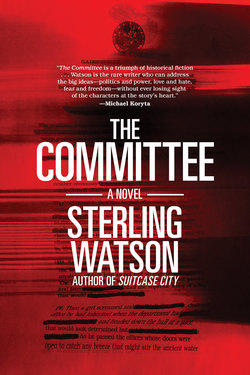Читать книгу The Committee - Sterling Watson - Страница 4
На сайте Литреса книга снята с продажи.
ОглавлениеAuthor’s Note
This novel opens in Gainesville, Florida, a university city, in the year 1958 when the infamous Johns Committee of the Florida legislature sought to root out homosexuals, Communists, and advocates for civil rights in public universities across the state, portraying them as a dire threat to the children of Florida.
All writers of fiction based on history struggle with the question: How much latitude may I grant myself in changing the facts to meet the demands of the story? Few historical events of any importance actually arrange themselves as fiction must and does arrange itself. History is often not a story but a mess. Academic historians will find that my greatest sin in this novel is the compression of time. For dramatic purposes, I have made things that took years to unfold happen in months or days.
The facts of history are that in 1953, Florida’s governor, Dan McCarty, died of a heart attack and was succeeded by Charley Johns, president of the Senate, who established or at least gave his imprimatur to the Florida Legislative Investigation Committee—the Johns Committee.
When I began graduate school at the University of Florida in 1969, I met professors who had been harassed by the Committee. Some were permanently scarred. I became intrigued by their stories, but I must emphasize that all but one of the characters in The Committee are invented. My invented characters are not based on real people, though many are typical—in the sense that people resembling my characters did then and do now populate university cities.
In this novel, I have attempted to portray the thoughts and actions of ordinary people as they would have been in 1958, not as we wish they had been. It is shortsighted and all too easy to write about historical subjects by teleporting our own “enlightened” views back to the past so that fictional characters may resemble us in our more evolved state (which, of course, will seem quaint or worse to our grandchildren). Thus, one of the difficulties of this project was to create characters who are more or less typical of their times but also open to the sympathy of readers who have achieved different or higher levels of consciousness. Of course, I say this in full awareness of the fact that in every age there are people who see far into the future and act as denizens of the future will act when their time comes on the stage. Most of us live and act in the fog and error of our times, to the best of our abilities, sometimes guided by what William Faulkner called “the old verities.” If some of those verities have found their way into this book, that is good enough for me. By definition, they never change.
